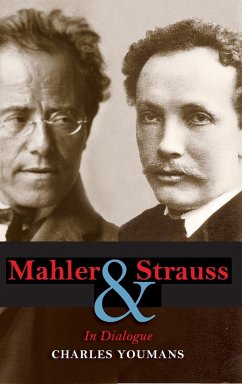
The Strauss Dynasty and Habsburg Vienna

PAYBACK Punkte
15 °P sammeln!
The music of the Strauss family - Johann and his three sons, Johann, Josef and Eduard - enjoys enormous popular appeal. Yet existing biographies have failed to do justice to the family's true significance in nineteenth and early twentieth-century musical history. David Wyn Jones addresses this deficiency, engagingly showing that - from Johann's first engagements in the mid-1820s to the death of Eduard in 1916 - the music making of the family was at the centre of Habsburg Viennese society as it moved between dance hall, concert hall and theatre. The Strauss industry at its height was, he demons...
The music of the Strauss family - Johann and his three sons, Johann, Josef and Eduard - enjoys enormous popular appeal. Yet existing biographies have failed to do justice to the family's true significance in nineteenth and early twentieth-century musical history. David Wyn Jones addresses this deficiency, engagingly showing that - from Johann's first engagements in the mid-1820s to the death of Eduard in 1916 - the music making of the family was at the centre of Habsburg Viennese society as it moved between dance hall, concert hall and theatre. The Strauss industry at its height was, he demonstrates, greater than any one of the individuals, with serious personal and domestic consequences including affairs, illness, rivalry and fraud. This zesty biography, spanning over a hundred years of history, brings the dynasty brilliantly to life across a large canvas as it offers fresh and revealing insights into the cultural life of Vienna as a whole.













